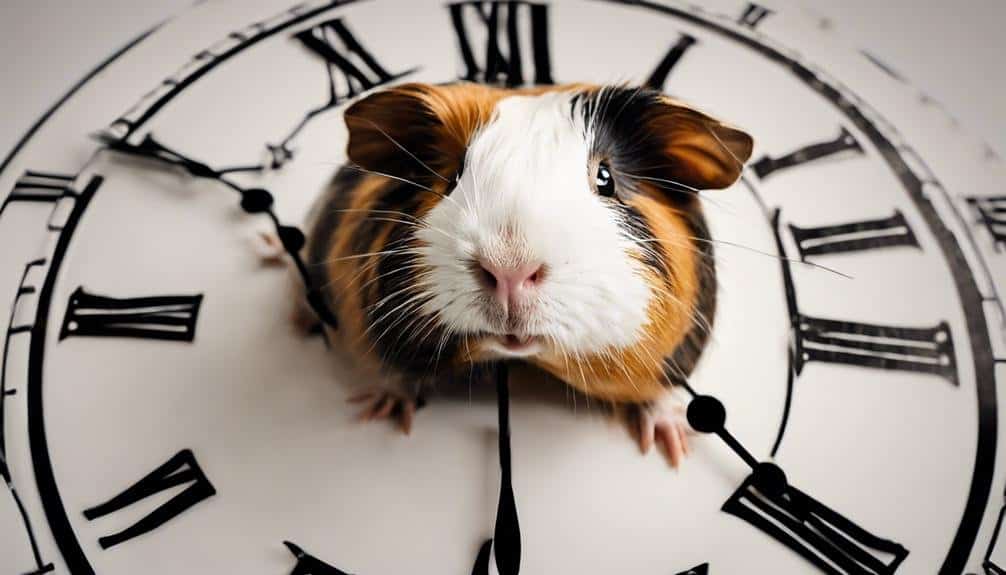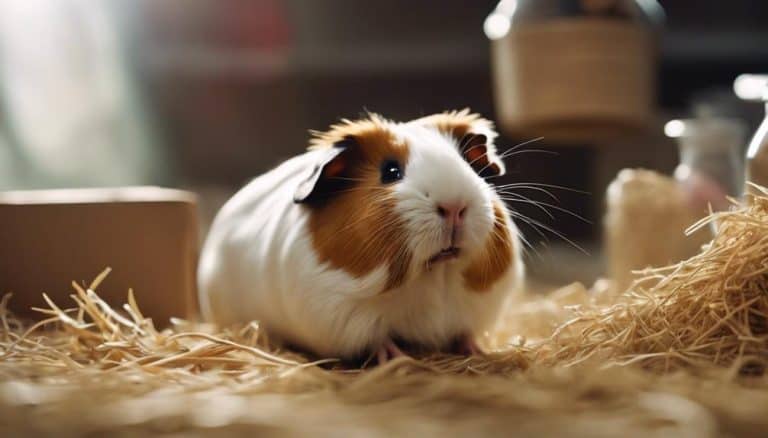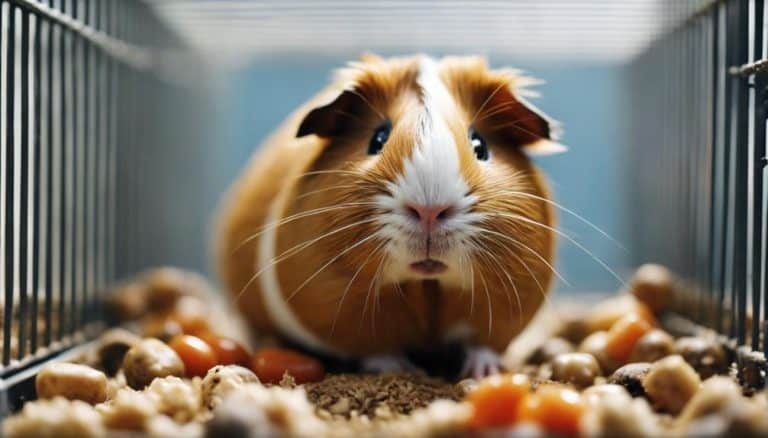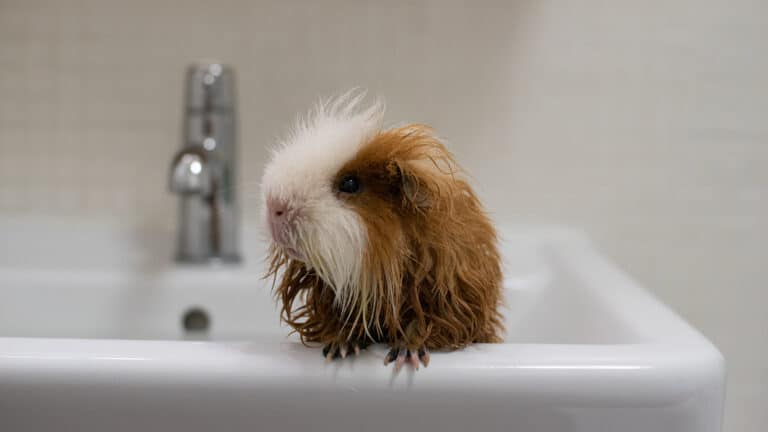How Does Guinea Pigs' Sleep Pattern Affect Their Health?
Did you know that guinea pigs have a unique sleep pattern that can significantly impact their health? Understanding how these adorable creatures sleep can provide valuable insights into their well-being.
From the duration of their naps to the quality of sleep they experience, guinea pigs’ rest habits are more complex than one might think.
Exploring the correlation between their sleep patterns and overall health unveils a fascinating aspect of caring for these beloved pets. So, let’s uncover the secrets behind how guinea pigs’ sleep routines affect their health and what we can do to support them better.
Impact of Guinea Pigs’ Sleep Duration
Guinea pigs require 4-6 hours of sleep daily to maintain optimal health and well-being. Adequate sleep duration is crucial for guinea pigs’ overall health, as it plays a significant role in their immune system function. Consistent sleep patterns contribute to their alertness, activity levels, and weight management.
Monitoring changes in their sleep duration can provide early indications of underlying health issues, highlighting the importance of observing their sleep habits closely. Insufficient sleep can weaken their immune system, making them more susceptible to illnesses. Additionally, ensuring a comfortable sleep environment is essential for promoting good health and longevity in guinea pigs.
Relationship Between Sleep Quality and Health
Insufficient sleep quality negatively impacts the immune system of guinea pigs, increasing their vulnerability to illnesses. Guinea pigs deprived of adequate sleep may exhibit behavioral changes, such as increased irritability or decreased interaction with their environment. Moreover, they could experience weight loss and show reduced activity levels compared to well-rested counterparts. Chronic sleep deprivation can have severe consequences on the overall health and well-being of these small animals, emphasizing the importance of providing a suitable sleep environment and maintaining a consistent routine. Ensuring guinea pigs have ample rest time is crucial for their health, as it allows for proper bodily functions and promotes overall well-being. Monitoring their sleep patterns regularly enables early detection of any deviations, aiding in the prompt identification and management of potential health issues before they escalate.
| Sleep Quality | Effects | Recommendations |
|---|---|---|
| Inadequate | Weakened immune system | Provide suitable sleep environment |
| Behavioral changes | Maintain a consistent routine | |
| Weight loss | Allow sufficient rest time |
Effects of Disrupted Sleep Patterns

The repercussions of disrupted sleep patterns on the health of guinea pigs are multifaceted, encompassing effects on their immune system, behavior, and overall wellness. Disrupted sleep patterns can lead to a weakened immune system in guinea pigs, making them more susceptible to illnesses. Additionally, changes in sleep habits such as chronic sleep deprivation may indicate underlying health issues that need to be addressed promptly.
Guinea pigs experiencing disrupted sleep patterns are also at risk of showing behavioral changes, weight loss, and decreased activity levels, all of which can significantly impact their well-being. Providing a suitable sleep environment and routine is crucial for maintaining the overall health and vitality of guinea pigs.
Therefore, monitoring their sleep patterns closely and ensuring a consistent and comfortable sleep environment is essential for safeguarding their health and ensuring they lead happy and healthy lives.
Importance of Consistent Sleep Routine
Understanding the significance of maintaining a consistent sleep routine for guinea pigs is essential for promoting their overall health and well-being. Consistent sleep routines help regulate guinea pigs’ circadian rhythms, enhancing their health and well-being.
Maintaining a regular sleep pattern reduces stress and anxiety, leading to better immune function in guinea pigs. Adequate sleep promotes proper digestion and nutrient absorption, supporting their digestive health.
A consistent sleep routine ensures guinea pigs have enough rest to stay active, alert, and engaged during their waking hours. Disruptions in their sleep schedule can impact their mood, behavior, and ability to cope with environmental stressors, ultimately affecting their overall health.
Tips for Promoting Healthy Guinea Pig Sleep

Establishing a consistent bedtime routine is crucial for fostering healthy sleep habits in guinea pigs. Guinea pigs love routine, so creating a calming environment before bedtime can help them settle down for the night. Ensure that their sleeping area is safe, comfortable, and free from any disturbances.
Pay attention to their odd sleeping behaviors as they may indicate underlying health issues. Guinea pigs lie down to sleep and often do so in short naps throughout the day, so it’s essential to keep the noise level down during their rest periods. Maintaining proper ventilation and darkness in their sleeping area can contribute to a better quality of sleep.
Guinea pig sleeps are vital for their immune system, overall health, and activity levels, so promoting healthy sleep habits is key to their well-being. By following these tips, you can help your guinea pig establish good sleep habits and ensure they get the rest they need.
Conclusion
In conclusion, understanding and monitoring the sleep patterns of guinea pigs is crucial for maintaining their health and well-being. By recognizing changes in their sleep duration and quality, we can address potential health issues early on.
Providing a comfortable sleeping environment and promoting a consistent sleep routine are key factors in ensuring the overall health of guinea pigs. By prioritizing their sleep needs, we can help them live happy and healthy lives.







